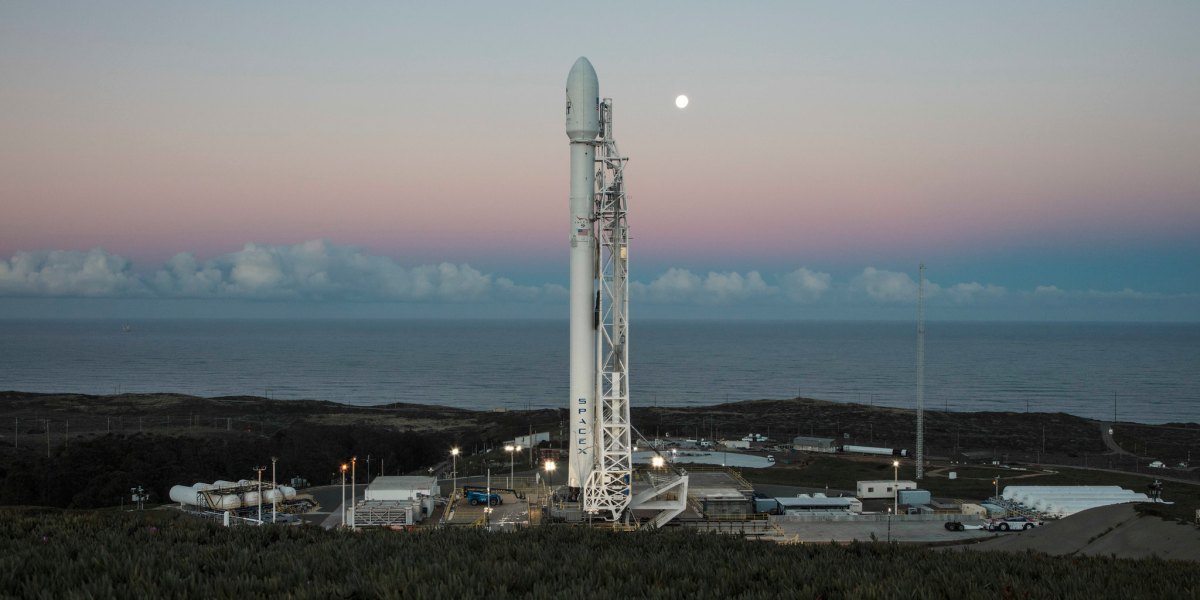SpaceX has filed a lawsuit against a California agency this week after the body rejected a proposal to increase the company’s launches from the state’s coastline to 50 per year.
The California Coastal Commission (CCC) made its decision at an October 10 meeting, despite the U.S. Air Force endorsing the plan on the grounds that more launches of Starlink and Starshield, the defense-focused unit, are critical to national security.
In the lawsuit, SpaceX says that the commission engaged in “naked political discrimination” when some commissioners cited the political activity of CEO Elon Musk, while also attempting to unlawfully regulate federal agency activities. The CCC declined to comment for this story. SpaceX did not immediately respond to TechCrunch’s request for comment.
The first part of the complaint has gotten most of the headlines, and SpaceX will need to prove in court that the commission’s decision was substantially influenced by Musk’s politics. But the second part is arguably more substantial: what is the final legal authority over launch activities on a defense base, and do those activities count as federal or private when conducted by a commercial entity on behalf of the DOD?
SpaceX and the USAF say that launch cadence at Vandenberg Space Force base is a “federal agency activity” because of the capabilities of Starlink and the company’s launches of other national security payloads, even though Starlink is also a commercial product.
Under this interpretation, the USAF would simply need to submit a certification stating that the proposed launches are consistent with state policy.
But the commission rejected this characterization of SpaceX launches, given that the company also launches commercial payloads and sells Starlink to the general public, with the agency arguing that increased launches would require the company to apply for a “coastal development permit” (CDP) with the CCC.
Staff at the commission recommended that the commissioners concur with the USAF. They argued that the Air Force had committed to implementing protective measures against sonic booms, and pointed out a lack of evidence that increasing launches from 36 to 50 annually would have adverse environmental effects. The commission will have another opportunity to consider launch increases soon; it is expected that SpaceX and the USAF will look to increase launches again, to 100 per year.
Commissioners were far from unanimous in their rejection of SpaceX’s plan — the final vote was 6-4 against — and most cited their view that the launches were primarily a private, not federal, activity and as such required a CDP. But it is true that some commissioners specifically pointed to Musk’s political activity.
“We’re linking the private and the public,” Commissioner Mike Wilson said. “This company is owned by the richest person in the world with direct control of what could be the most extensive communications system on the planet,” Commissioner Mike Wilson said. “Just last week that person was speaking about political retribution on a national stage,” he said, referring to Musk’s appearance at a rally for President Donald Trump in Pennsylvania. “We’re talking about the promotion of this technology and a human being that has so much power over that, and I just want to acknowledge that.”
SpaceX lawsuit also quoted a statement from commissioner Gretchen Newsom, who described how Musk has been “hopping about the country, spewing and tweeting political falsehoods and attacking FEMA while claiming his desire to help the hurricane victims with free Starlink access to the internet.”
She went on to applaud the USAF’s willingness to adopt additional environmental protective measures but said these should be footed by SpaceX: “These items should be the duty and burden of SpaceX, not the military and taxpayers undertaking these oversights to the benefit of SpaceX,” she said.
The dispute raises an important point about the difference between federal and private activity, especially as the U.S. government across civil and defense agencies increasingly procures services from private companies rather than buying or owning the equipment themselves. (E.g., rather than the DOD owning and operating a satellite communications network for national security and the intelligence community, it purchases capacity from SpaceX.)
SpaceX obviously believes that its commercial launches are federal agency activities, legally speaking. The company is asking the Central District of California court to find the commission’s rejection of the plan unlawful.




